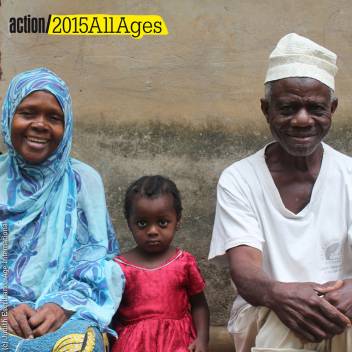 Africa Day is marked annually on 25 May and was set up in the 1960s by the precursor to the African Union, the Organization of African Unity (OAU).
Africa Day is marked annually on 25 May and was set up in the 1960s by the precursor to the African Union, the Organization of African Unity (OAU).
The aim of the OAU was to promote the unity and solidarity of African states and coordinate them to achieve a better life for the people of Africa.
This year’s Africa Day comes at a time when the UN Millennium Development Goals (MDGs), which came into being in 2000 are soon expiring, and the new Sustainable Development Goals (SDGs) will be initiated.
Better welfare for vulnerable groups
The African Union is still struggling on many of the issues addressed in the MDGs. The need for better welfare for older people, the young and the vulnerable is a huge challenge, as are other issues such as climate change, diseases and the threat of armed conflict.
While the African Charter on Human Rights and People makes specific provisions for the protection of older people’s rights (article 18(4) stipulates that, “Older Persons and people with disabilities shall have the right to special measures of protection in keeping with their physical or moral needs”), the government has yet to put in place appropriate policies to stop killings of older people.
However, the African Union’s ministers for social development have recently agreed on the protocol on rights of older people. It talks about the elimination of discrimination against older people and requires all forms of discrimination against older people to be stopped. This includes modifying social and cultural patterns of conduct which marginalise older people.
SDGs must represent global ageing populations
Some in the development sector are of the view that Africa’s sub-standard performance on the MDGs could be attributed to the failure by State Parties to involve as many stakeholders as possible.
It could be said that the MDGs focused too heavily on children and women. Not that these are not important, but global trends shows that population dynamics are changing very rapidly.
Life expectancy is on the rise and the demographic make-up of the world’s population is changing at an unprecedented rate. Today, there are more than 895 million women and men aged 60 and over, representing 12% of the global population. By 2030, this is projected to rise to 1.3 billion or 16%; while the proportion of people aged 15-24 will be 15%.
On a positive note, there seems to change happening. There is some awareness that sustainable development cannot take place without including older people.
Action All Ages Day
Organisations like HelpAge International are organising intergenerational dialogues for Action All Ages Day, which was 22 May and is part of the ongoing action/2015 campaign.
This campaign highlights the importance of all ages in the Sustainable Development Goals being set for the next fifteen years at the United Nations in September and at the UN Climate Change Conference COP21 in December.
Across the world, from the Philippines to Zimbabwe, we have joined hands with the world’s older people, who too often go unheard and uncounted.
Quite simply, we want to make sure older people are included in these goals to ensure they are legitimate.
Find out more about the action/2015 campaign.
